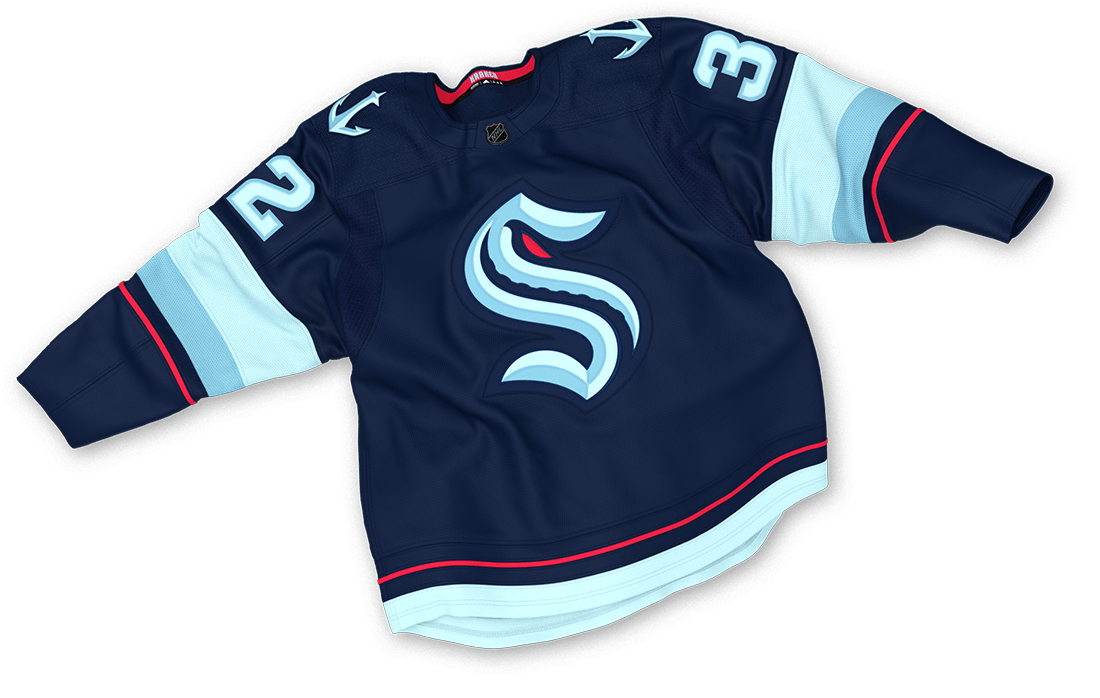Hockey History
What Does the Man Who Named the Sharks Think of the Kraken?

30 years ago, before Matt Levine and his team selected the Bay Area NHL expansion franchise’s nickname, they established seven criteria that the name had to meet:
• Had to have a regional connection
• Had to be a unique name in all of sports
• Had to be emotionally charged and exciting
• Had to lend itself to “imaginative graphic interpretation”
• Had to suggest qualities you’d want in a hockey player and team
• Could not be shortened in a headline
• Couldn’t be a concept name
With all this in mind, the Sharks were born in September 1990.
So what does Levine — a sports marketing pioneer with six decades of experience working with the San Jose Sharks, Golden State Warriors, New York Mets, and many other teams — think of the Seattle Kraken? Does the Kraken meet Levine’s seven criteria?
“When I heard the name,” Levine admitted, “my first reaction was what?”
From a marketing perspective, Levine, who’s now the Vice President of Business Development & Marketing for 3BALL USA, is especially concerned about two things in regards to the Kraken nickname.
“One of the criteria that the Kraken breaks is we didn’t want a concept name,” Levine said. “What’s a concept name? It’s basically something that doesn’t summon a specific image immediately. The Rage. The Wild.”
The key word here is “immediately.”
Sure, we know a kraken is a mythic giant sea monster. But it’s certainly not as accessible to as many people as a shark.
The former San Jose vice president of marketing & broadcasting emphasized that comparing the Kraken to the Sharks wasn’t to trumpet his own work, but to be instructive.
“[The Kraken] has a lot of appeal locally,” Levine noted. “But one of the things that we were looking for with the Sharks was to come up with a name that was not clever but generated universal emotion.”
Indeed, if you didn’t pay attention to the Age of Discovery in your European history books or if you missed either “Clash of the Titans,” the Kraken might go over your head.
“Whether you were in Sweden, Philadelphia, or San Jose, the notion of a shark is scary,” Levine said. “People in Europe or Florida or New Jersey, it’s going to take a lot of money to educate them on what kraken means.”
Levine is also concerned that the Kraken won’t maximize their name-brand recognition and revenue because the name might get shortened.
“It’ll be interesting to see whether the Kraken ever become the Kracks. It’s just like the Mariners, they’re the M’s. The Yankees are the Yanks. The Cowboys are the Boys,” Levine mused.
There are, of course, even more negative connotations than “Kracks.” And recognizing that the New York Yankees and Dallas Cowboys are still money-making machines, Seattle has to be nimble about identifying possible varieties of its nickname.
“When a newspaper or electronic media shortens your name to a form that you have not trademarked, then you lose control of it,” he suggested. “All of a sudden, someone can come out with a T-shirt that says Yanks. The league doesn’t get any compensation for it because you didn’t protect it.”
All that said, Levine likes a lot about the Kraken, such as the logo. Since the mythic monster lacks universal appeal, more reserved representation made sense.
“They don’t have a logo that includes a kraken in it. It’s very subtle. It leaves a lot to your imagination. People can read into it, whatever they want,” Levine observed. “We did exactly the opposite with the Sharks. We didn’t leave anything to anyone’s imagination.”
Levine also praised Seattle’s color palette, laughing, “Their color collection is good, per my liking of things in the blue family that aren’t real blue.”
None of these decisions, of course, are simply like or don’t like. They’re borne from mountains of marketing research.
“One of things that we learned and they’re doing, when you combine blue with black, the blue has a lot of appeal to women,” Levine pointed out. “While women like the blue, when you pair it with black, then it brings the men in too.”
The most important thing that Levine likes about the Kraken, however, has nothing to do with the name, colors, or logo.
“I have a great deal of respect for Seattle president Tod Leiweke,” Levine said. “I recruited him on behalf of the Golden State Warriors ownership to become their director of marketing back in the mid-80s, when he was only 24, 25 years old. He was the youngest NBA director of marketing in the whole league.”
Levine trusts that Leiweke is prepared for any potential marketing shortcomings: “Knowing Tod Leiweke, he’s done a lot of work around Kraken.”



















